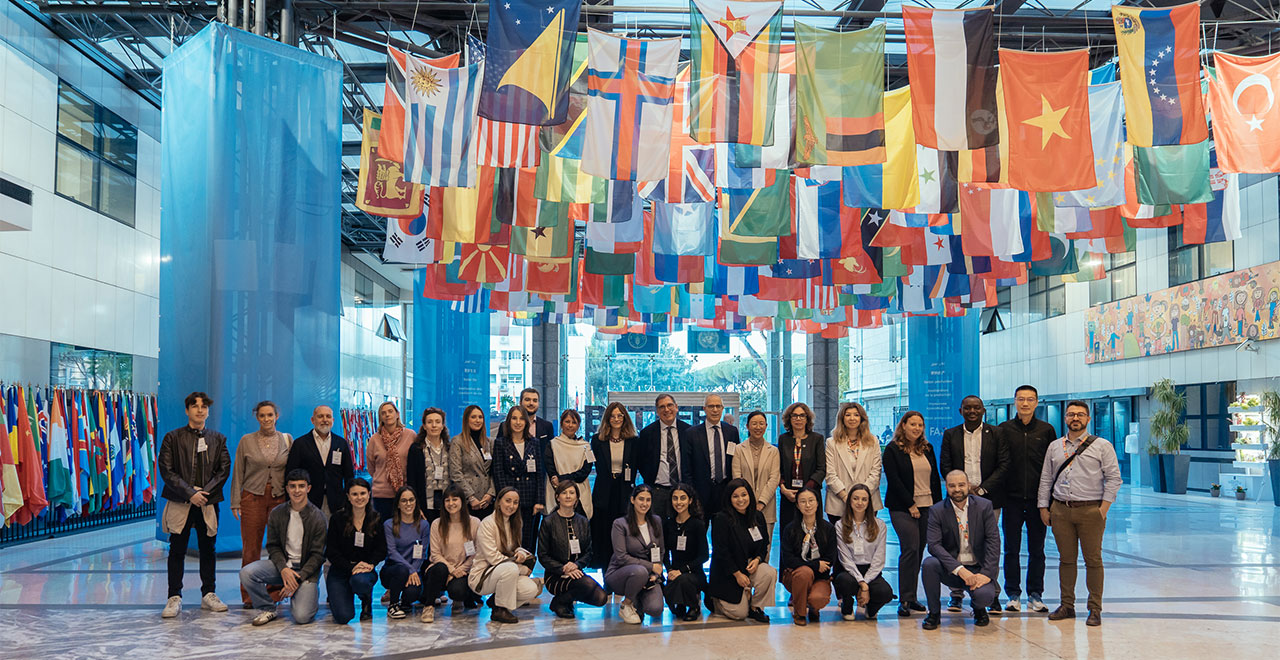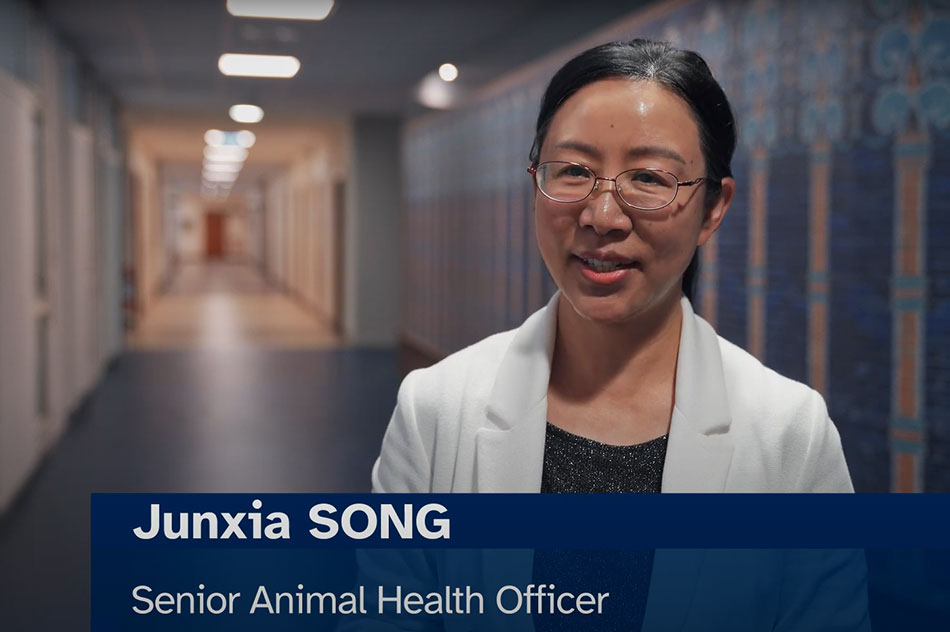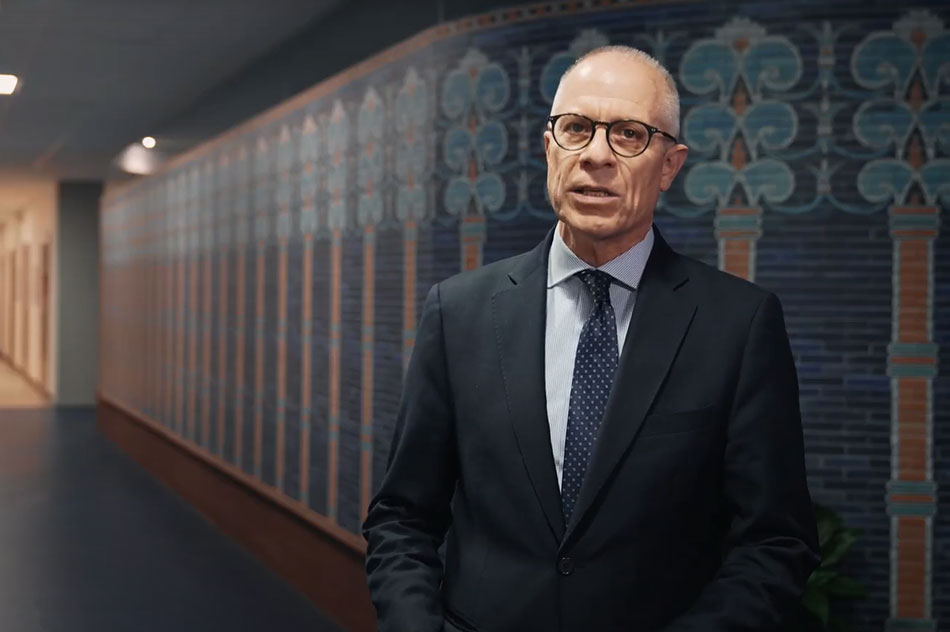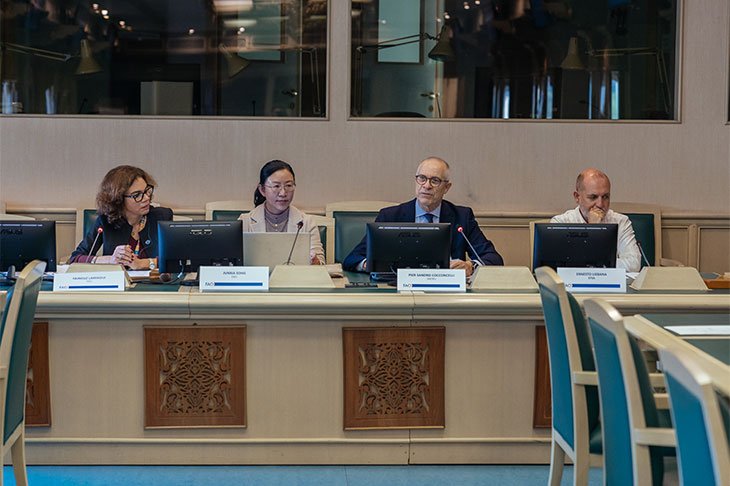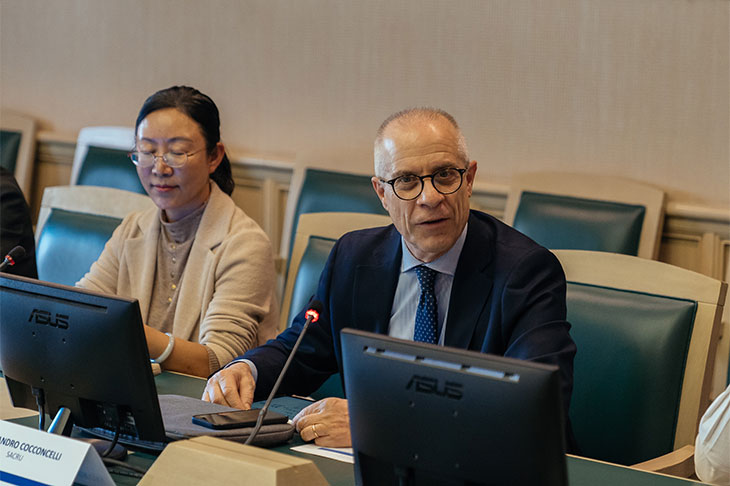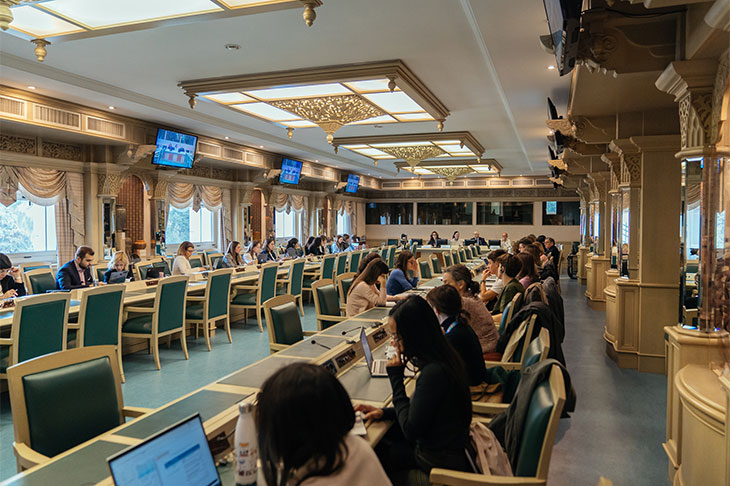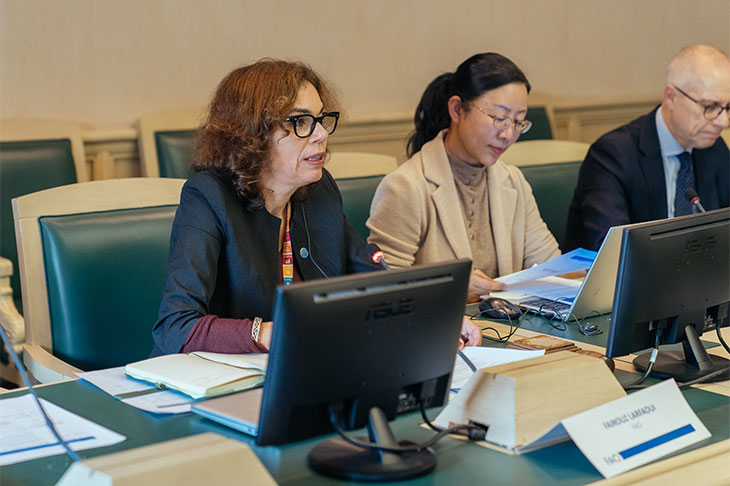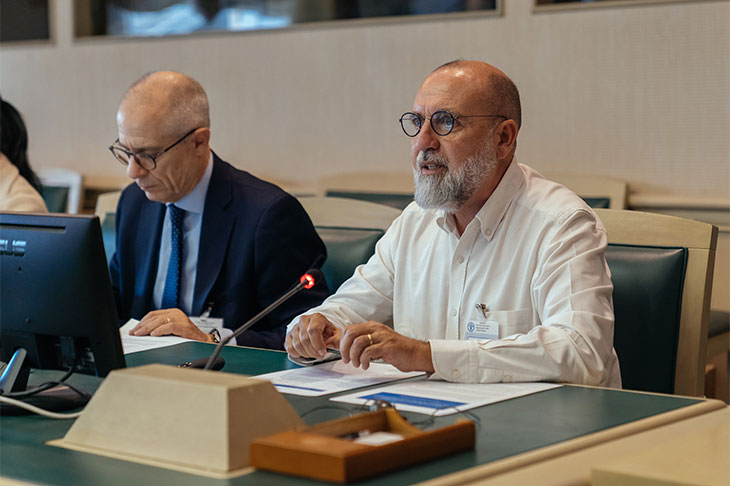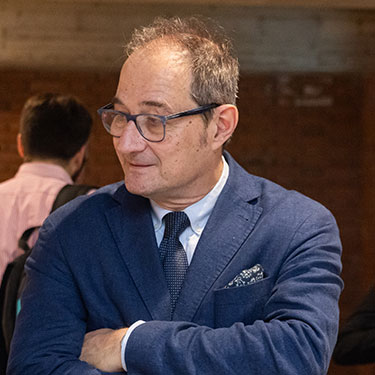On the second day of the workshop, an interesting and well-participated roundtable on the topic of antibiotic resistance took place. It was moderated by Andrea Urbani, Full Professor of Clinical Biochemistry and Clinical Molecular Biology: “In our University Department we have chosen to translate the One Health approach into concrete actions through innovative and tangible programs. The three-year funding obtained by our University represents not only a recognition of our commitment, but also an investment in addressing global health challenges. This first event, organized under the auspices of the United Nations, allows us to focus on a crucial issue: antibiotic resistance". Urbani also added that “the evolution of drug resistance by microorganisms not only challenges the pharmaceutical industry in the development of new chemical entities, but also requires a more strategic and responsible use of existing drugs. For our Pharmacy students, this is a unique opportunity to immerse themselves in a global debate, touching on the central issues of a global challenge and building skills to address the future of public health.”
“The increasing prevalence of antifungal resistance poses a significant threat to human, animal and environmental health, especially in the context of the One Health approach,” Maurizio Sanguinetti, Full Professor of Microbiology and Clinical Microbiology, said. “This challenge highlights the interconnectedness between ecosystems, as resistant fungal pathogens can emerge and spread between clinical, agricultural and natural environments, requiring coordinated efforts to monitor, prevent and mitigate their impact globally.
Two scientific, purposeful and international days where the global representation of issues and problems greatly enriched the discussions, shedding light on the challenges and opportunity to apply a “One Health” approach, integrating the health of humans, animals and the environment, to provide the global ecosystem with sustainable and shared solutions.



